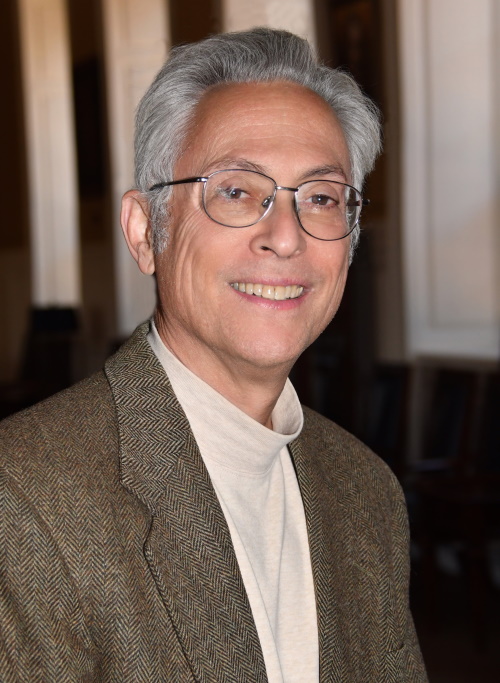
OPINION: ‘While blacks are undoubtedly the beneficiaries of preferences, they come at a serious cost’
Editor’s note: Jay Bergman is professor of history at Central Connecticut State University.
He received his B.A. from Brandeis University and his M.A., M. Phil., and Ph.D. from Yale University. His most recent book, “The French Revolutionary Tradition in Russian and Soviet Politics, Political Thought, and Culture,” was published in 2019 by Oxford University Press.
Professor Bergman, a member of the Board of Directors of the National Association of Scholars, recently penned a letter to his local school district superintendent urging her to not implement the “1619 Project” curriculum.
In the letter he made the point that “the whole notion that white racism is somehow embedded in contemporary American society is absurd. In virtually every major institution in America today blacks are the beneficiaries of preferences, misleadingly and euphemistically called ‘affirmative action’ to conceal the fact that they are inherently discriminatory and unfair, and in violation of the 1964 Civil Rights Act.”
Bergman (pictured) has expanded on his argument in a guest column for The College Fix, in particular addressing the idea of black privilege on campus.
 Of course there is what might accurately be termed “black privilege” in America today.
Of course there is what might accurately be termed “black privilege” in America today.
It exists in academia in the form of preferences, euphemistically and misleadingly termed “affirmative action,” in faculty hiring and student admissions, of which blacks are the principal, though by no means the only, beneficiary.
This is borne out by the simple and easily demonstrable fact that black applicants are admitted to colleges and universities with lower SAT scores than those of whites and others who are rejected.
Indeed, there is virtually nothing universities will not do today to attract and to retain black students: provide separate dormitories and graduation ceremonies; prohibit so-called microaggressions, which are supposedly a manifestation of unconscious “implicit bias” in whites; establish special “black studies centers” and hire deans and vice presidents of “diversity and inclusion” at ridiculously inflated salaries, relative to those of professors, whose principal purpose is to make these students “comfortable” by shielding them from opinions that are different from their own; and so on.
Preferences on the basis of race are inherently discriminatory and unfair. To give preference to some on the basis of race is necessarily to discriminate against others on the basis of race. These preferences are therefore violative not only of the 1964 Civil Rights Act, but of the Fourteenth Amendment to the United States Constitution.
Ironically, among the “losers” in these preferences — for example, those who are not admitted as undergraduates because of their race — are not whites so much as Asian-Americans, whose qualifications for admissions, as measured in SAT scores, are superior, in the aggregate, not only to those of blacks, but also of whites.
But while blacks are undoubtedly the beneficiaries of these preferences, they come at a serious cost. Blacks with qualifications inferior to those of whites and Asians who are nonetheless admitted to universities in which they cannot fully compete tend to self-segregate. Hence the re-segregation of American colleges and universities, which makes a mockery of the noble objectives of the original Civil Rights Movement of the 1960s.
Even worse, data have shown that unless there is grade inflation, many of these black students flunk out or leave voluntarily. What makes this especially tragic is that blacks who are admitted to universities with qualifications commensurate to their abilities perform very well, and enjoy graduation rates virtually identical to those of whites, Asians, Hispanics, and others.
MORE: Affirmative action hurts students it’s intended to help
MORE: Black students demand segregated spaces from white students
The whole matter of black privilege is more complicated and morally ambiguous than how it is understood both by its supporters and its opponents. While blacks certainly enjoy a degree of “privilege” in academia, the preferences that enable their admission, and the perks they enjoy as matriculated students, are ultimately for the benefit of the largely white administrators who perpetuate them.
More than anything else, black privilege enables the largely white administrators who establish it and enforce it to feel good about themselves. Indeed, there is nothing more essential to the self-image of college and university administrators than that they believe themselves to be morally virtuous. And what follows inescapably from this unwarranted self-regard is that anyone who opposes the preferences and the privileges they support are morally deficient.
Ironically, the whole nationwide regime of discriminatory racial preferences exists at least as much for those who administer them (often in violation of state as well as federal law) as it does for those who receive them.
The unfairness, the hypocrisy, and the morally corrupting effects of these preferences should be obvious to any sentient human being not beholden to the omnipresent cult in higher education of “diversity,” which holds that these preferences are good for everyone, not just for blacks and other recipients of preferences, because they create a “diverse learning environment,” in which students of one race are exposed to the beliefs and values of students of other races.
But the assumption implicit in this is that people of the same race think the same things and that they do so because of their race. This is empirically false. In fact, it is racist. Blacks don’t think the same things any more than any other subset of human beings selected on the grounds of their skin color or any other collective trait and without regard for the individuality of every single human being.
Yet it is the inevitable byproduct of an academic culture that refuses to acknowledge that diversity based on race and other cosmetic factors is really an epiphenomenon, without any basis in reality, and that the only kind of diversity that matters in higher education is intellectual diversity.
And if, in hiring faculty, intellectual diversity, rather than cosmetic diversity based on race, is what colleges and universities should strive for, they would hire black applicants not because they are black — as they do today — but rather applicants who happen to be black. Individual attributes, abilities, and talents — these, not race, are the appropriate criteria in consideration.
So, yes, there is black privilege in American higher education, and in the short term blacks students are the beneficiaries of it. But this privilege is inevitably and over the long run morally corrupting not only of blacks in higher education, but of everyone in higher education — faculty, students, and most of all college and university administrators, for whom the self-exorcism of totally unwarranted liberal guilt insinuates itself into virtually everything they say and do.
MORE: ‘Black privilege is real’ prof under fire: protest hits his home, students demand he be fired
Like The College Fix on Facebook / Follow us on Twitter





Please join the conversation about our stories on Facebook, Twitter, Instagram, Reddit, MeWe, Rumble, Gab, Minds and Gettr.